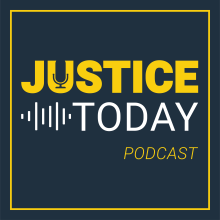Program evaluation
Enhancing Supervision and Support for Released Prisoners
Ex-Offender Job Placement Programs Do Not Reduce Recidivism
Assessing Drug Abuse Programs: Benefits From Partnering With Researchers
Boot Camps: Mixed Results
Comparative Evaluation of Protective Gloves for Law Enforcement and Corrections Applications
Evaluating Drug Control Initiatives: Third Annual Conference, Washington, D.C., July 27-29, 1992
Employment Services for Ex-Offenders Field Test - Detailed Research Results
Employment Services for Ex-Offenders Field Test - Summary Report
Evaluation of the Field Test of Supervised Pretrial Release Final Report
AN EXEMPLARY PROJECT - JUVENILE DIVERSION THROUGH FAMILY COUNSELING: A PROGRAM FOR THE DIVERSION OF STATUS OFFENDERS IN SACRAMENTO COUNTY, CALIFORNIA
Synergistic Solution for Children of Incarcerated Parents: Girl Scouts Beyond Bars
Police Shootings and the Prosecutor in Los Angeles County - An Evaluation of Operation Rollout
Desistance: It's a Process, Not an Event
Taking Stock: An Overview of NIJ's Reentry Research Portfolio and Assessing the Impact of the Pandemic on Reentry Research
Over several decades, the National Institute of Justice (NIJ) has made significant contributions to the field of reentry, specifically what works for whom and when. In recent years, however, the global pandemic has made it increasingly difficult to conduct research on and with populations involved with the justice system. During this time, many researchers assessing various justice-related outcomes were unable to continue their inquiries as planned due to a lack of access to their populations of interest, forcing many to pivot and rethink their research designs.
See the YouTube Terms of Service and Google Privacy Policy
Learning from Doing Evaluating the Effectiveness of the Second Chance Act Grant Program
Reauthorized in 2018, the Second Chance Act (SCA) aims to reduce recidivism and improve outcomes for people returning from state and federal prisons, local jails, and juvenile facilities through the provision of federal grants. During this panel, National Institute of Justice-funded researchers will detail two ongoing evaluations of the SCA grant program:
- An evaluation of the effectiveness of the SCA grant program per Title V of the First Step Act.
- A longitudinal examination of the long-term impacts of the SCA program.
See the YouTube Terms of Service and Google Privacy Policy
The Hidden Costs of Reentry: Understanding the Barriers to Removing a Criminal Record
NIJ hosted a webinar to discuss under-researched aspects of reentry: expungement of criminal records and the impact of those records. This webinar includes a presentation of ongoing research projects examining the impact of legal aid for expungement and past research projects studying the accuracy and permanency of criminal records and the prevalence of collateral consequences of conviction. A Q&A session will conclude this webinar.
See the YouTube Terms of Service and Google Privacy Policy
From Successful Reentry to Stronger Communities
"It's Hard to Show Empathy in a Text": Developing a Web-based Sexual Assault Hotline in a College Setting
Desistance: It's a Process, Not an Event
Can novel 'swift-certain-fair' programs work outside of pioneering jurisdictions? An analysis of 24/7 Sobriety in Montana, USA
Learning from Doing: Evaluating the Effectiveness of the Second Chance Act Grant Program




